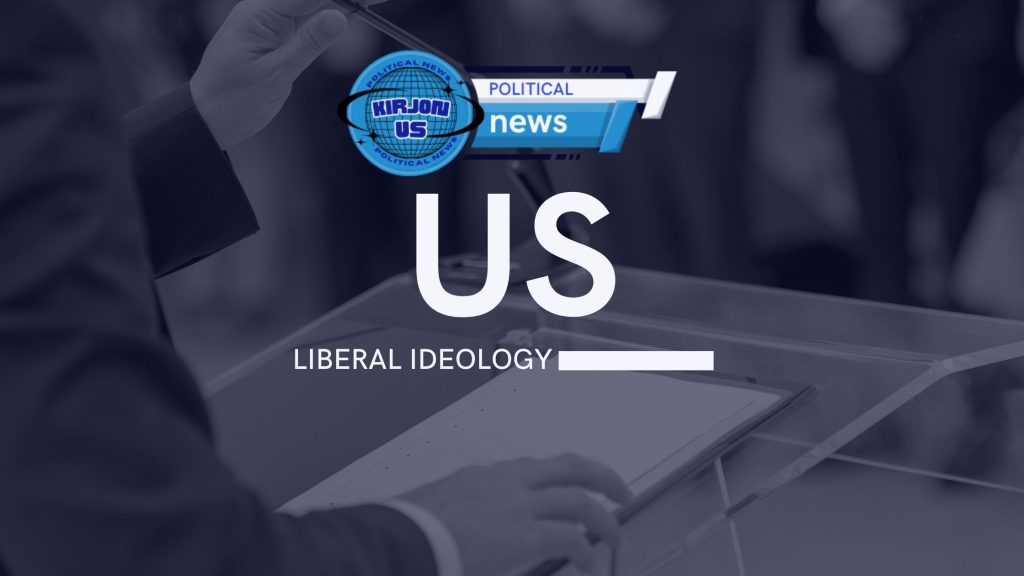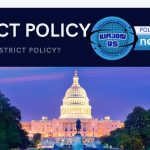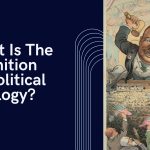Liberal ideology is a cornerstone of political thought, not just in the United States but across the globe. At its essence, liberalism champions individual rights, societal progress, and governmental intervention for the betterment of society. Understanding liberal ideology is essential to comprehending the dynamics of American politics and its broader societal implications. In this section, we’ll delve into the definition of liberalism and explore its historical roots in the United States.
Liberalism is a political and philosophical doctrine that prioritizes the rights and freedoms of individuals. It advocates for a society where individuals are free to express themselves, pursue their goals, and live their lives without undue interference from external forces, particularly the government. Central to liberal ideology are principles such as liberty, equality, and justice.
The roots of liberalism in the United States can be traced back to the founding principles of the nation. The Declaration of Independence, with its assertion that “all men are created equal” and endowed with “certain unalienable Rights,” reflects a fundamentally liberal worldview. The Constitution, with its emphasis on individual rights and the limitation of governmental power, further solidifies the influence of liberal thought in the nation’s founding documents.
Throughout American history, liberalism has evolved and adapted to changing social, economic, and political contexts. From the abolitionist movement to the struggle for civil rights, liberal ideals have been at the forefront of efforts to expand rights and opportunities for marginalized groups. Today, liberalism continues to shape debates and policies on issues ranging from healthcare and education to immigration and environmental protection.
Key Principles of Liberalism
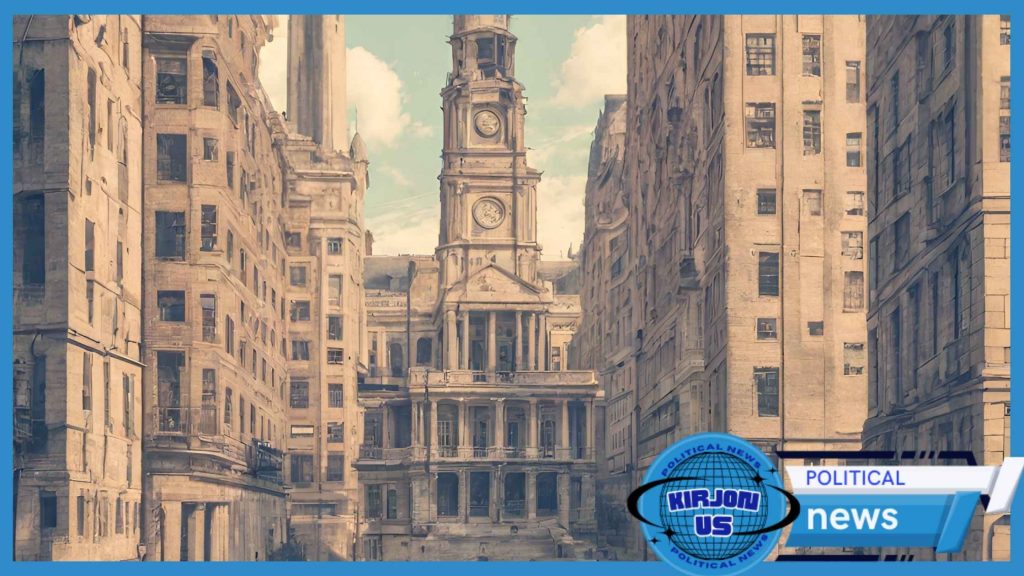
Individual Rights and Freedoms
Liberal ideology places a paramount importance on safeguarding the rights and freedoms of individuals. This includes fundamental liberties such as freedom of speech, religion, assembly, and the press. Liberals argue that these rights are essential for the flourishing of individuals and the maintenance of a healthy democracy. They contend that individuals should be free to express themselves, pursue their beliefs, and engage in peaceful activism without fear of reprisal or censorship.
Equality and Social Justice
Another cornerstone of liberalism is the pursuit of equality and social justice. Liberals advocate for a society where all individuals have equal opportunities to succeed, regardless of their background or circumstances. This entails combating discrimination and inequality based on factors such as race, gender, sexual orientation, ethnicity, religion, or socioeconomic status. Liberals often champion policies aimed at leveling the playing field, such as affirmative action, anti-discrimination laws, and programs to address income inequality and poverty.
Government Intervention
While liberalism values individual freedoms, it also recognizes the need for government intervention to address social and economic issues. Liberals argue that certain problems, such as market failures, environmental degradation, and social injustices, cannot be adequately addressed through individual action alone. As such, they support the use of government policies and programs to promote the common good and ensure a fair and just society. This may include regulations to protect consumers and workers, investments in infrastructure and public services, and social welfare programs to provide assistance to those in need.
In the next section, we’ll explore how liberalism has evolved over time in the United States, shaping the nation’s history and political landscape.
Evolution of Liberalism in the United States
Founding Principles
Liberalism has been ingrained in the fabric of the United States since its inception. The nation’s founding documents, including the Declaration of Independence and the Constitution, reflect liberal principles such as individual rights, limited government, and the rule of law. The founders envisioned a society where individuals could pursue their own interests and aspirations, protected by a government that derived its authority from the consent of the governed.
Progressive Era
During the late 19th and early 20th centuries, the United States experienced a period of significant social and political reform known as the Progressive Era. This era saw the emergence of progressive liberalism, which sought to address the social and economic challenges brought about by industrialization, urbanization, and rapid technological advancements. Progressives advocated for reforms such as workers’ rights, consumer protection, and women’s suffrage, as well as regulations to curb the power of monopolies and trusts.
New Deal Era
The Great Depression of the 1930s ushered in a new era of liberalism under President Franklin D. Roosevelt’s New Deal. In response to the economic crisis, the federal government enacted a series of sweeping reforms aimed at providing relief, recovery, and reform. The New Deal programs included initiatives such as Social Security, unemployment insurance, and public works projects, which aimed to alleviate poverty, stimulate economic growth, and restore public confidence in the government’s ability to address societal challenges.
Modern Liberalism
In the latter half of the 20th century and into the 21st century, liberalism has continued to evolve in the United States. Modern liberalism encompasses a broad range of political beliefs and policy positions, but it generally emphasizes principles such as social equality, environmental protection, and expanded access to healthcare and education. Liberalism has been associated with movements such as the civil rights movement, the feminist movement, and the LGBTQ+ rights movement, which have sought to advance equality and justice for marginalized communities.
The evolution of liberalism in the United States reflects a constant tension between individual rights and societal obligations, between limited government and active government intervention. In the following sections, we’ll examine the criticisms and controversies surrounding liberal ideology, as well as its impact on American society and politics.
Criticism and Controversies Surrounding Liberal Ideology
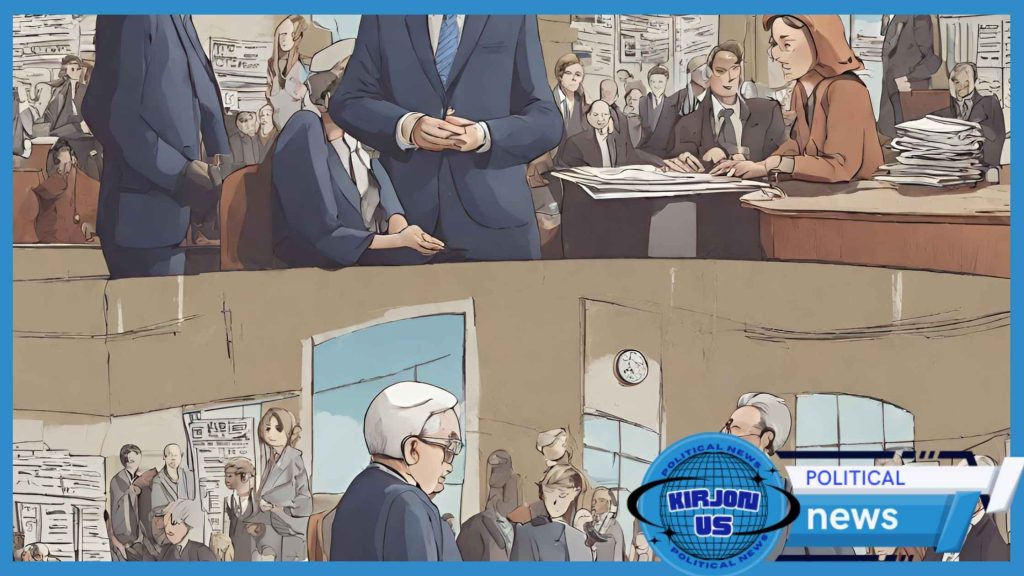
Role of Government
Criticism: One of the primary criticisms leveled against liberalism is its perceived tendency to expand the role of government in society. Critics argue that excessive government intervention can stifle individual freedoms, hinder economic growth, and lead to inefficiencies in the allocation of resources. They contend that liberal policies such as high taxes, extensive regulation, and expansive social welfare programs can create dependency and disincentivize personal responsibility.
Controversies: The debate over the appropriate role of government in liberal ideology has been a perennial source of controversy in American politics. While some argue for a more limited government that focuses on protecting individual rights and promoting free-market principles, others advocate for a more active government that plays a proactive role in addressing social and economic inequalities.
Economic Policies
Criticism: Liberal economic policies, such as progressive taxation, income redistribution, and government spending on social welfare programs, have been subject to criticism from various quarters. Critics argue that these policies can dampen economic growth, discourage investment and entrepreneurship, and create disincentives for work and innovation. They contend that excessive government intervention in the economy can lead to inefficiencies, market distortions, and unintended consequences.
Controversies: The debate over economic policies has been a central feature of American politics, with liberals advocating for measures to promote income equality and social mobility, while conservatives favoring policies that prioritize economic freedom and individual responsibility. The balance between government intervention and free-market principles remains a contentious issue, with ongoing debates over the appropriate role of government in regulating industries, providing social services, and addressing economic inequality.
Social Issues
Criticism: Liberal positions on social issues such as abortion, gun control, and immigration have also faced criticism from various quarters. Critics argue that liberal policies in these areas can undermine traditional values, erode social cohesion, and weaken national security. They contend that liberal efforts to promote diversity, tolerance, and inclusivity can sometimes lead to cultural relativism, moral relativism, and social fragmentation.
Controversies: The debate over social issues has been a source of considerable controversy in American society, with liberals advocating for progressive reforms to promote equality and justice, while conservatives defending traditional values and cultural norms. The clash between competing values and priorities has led to heated debates over issues such as affirmative action, same-sex marriage, and transgender rights, highlighting the deep ideological divides within the country.
In the next section, we’ll explore the impact of liberalism on American society, examining its contributions to issues such as civil rights, environmental protection, and healthcare.
Impact of Liberalism on American Society
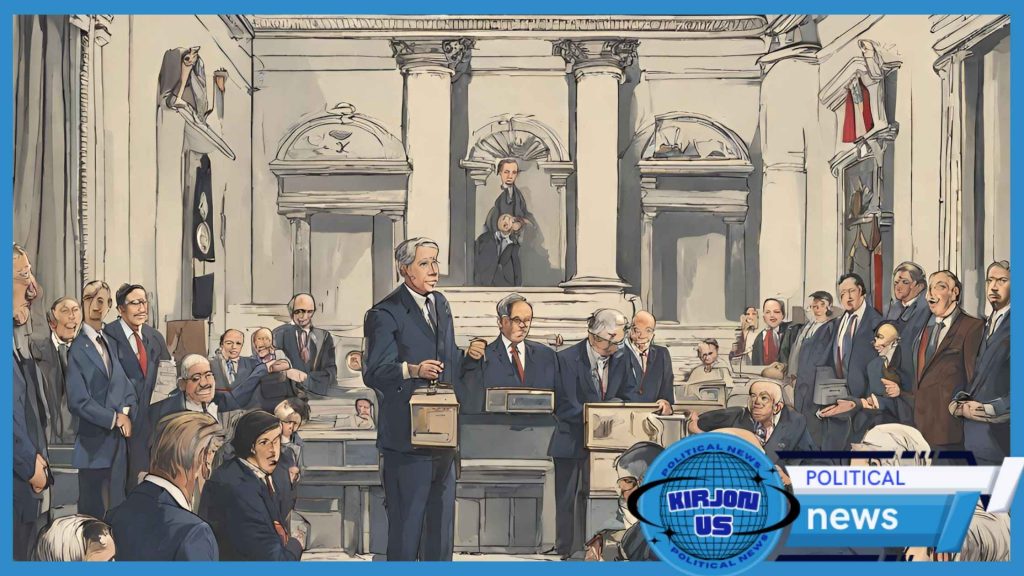
Civil Rights Movement
Contribution: Liberalism has played a pivotal role in advancing civil rights and equality in the United States. Throughout history, liberals have been at the forefront of movements to end racial segregation, discrimination, and inequality. The civil rights movement of the 1950s and 1960s, led by figures such as Martin Luther King Jr. and Rosa Parks, saw significant victories in the struggle for racial justice, including the desegregation of schools, the passage of the Civil Rights Act of 1964, and the Voting Rights Act of 1965.
Legacy: The legacy of the civil rights movement continues to resonate in American society today, as the fight for racial equality and social justice remains ongoing. Liberals continue to advocate for policies to address systemic racism, police brutality, and disparities in education, employment, and criminal justice. The Black Lives Matter movement, for example, has emerged as a powerful force for change, drawing attention to issues of racial injustice and police violence against Black communities.
Environmental Policies
Contribution: Liberalism has also played a key role in shaping environmental policies and promoting conservation efforts in the United States. Liberals have championed measures to protect natural resources, preserve wildlife habitats, and combat pollution and climate change. The environmental movement, which gained momentum in the 1960s and 1970s, led to landmark legislation such as the Clean Air Act, the Clean Water Act, and the establishment of the Environmental Protection Agency (EPA).
Impact: Liberal environmental policies have had a significant impact on American society, helping to improve air and water quality, protect endangered species, and preserve natural landscapes for future generations. However, environmental issues remain a pressing concern, as climate change poses increasingly dire threats to the planet. Liberals continue to advocate for bold action to reduce greenhouse gas emissions, transition to renewable energy sources, and address environmental justice issues affecting marginalized communities.
Healthcare and Education
Contribution: Liberalism has also influenced policies related to healthcare and education in the United States. Liberals have long championed efforts to expand access to affordable healthcare and quality education for all Americans. The passage of landmark legislation such as the Affordable Care Act (ACA) in 2010 expanded healthcare coverage to millions of previously uninsured individuals, while initiatives such as Head Start and Pell Grants have aimed to improve access to early childhood education and higher education.
Challenges: Despite progress in expanding access to healthcare and education, challenges remain in ensuring equitable access and quality outcomes for all Americans. Issues such as rising healthcare costs, disparities in educational attainment, and student loan debt continue to pose significant challenges. Liberals continue to advocate for policies to address these issues, including proposals for universal healthcare, tuition-free college, and student debt relief.
In the following section, we’ll compare liberalism with conservative ideology, examining the fundamental differences between the two and their implications for American politics and society.
Comparison with Conservative Ideology
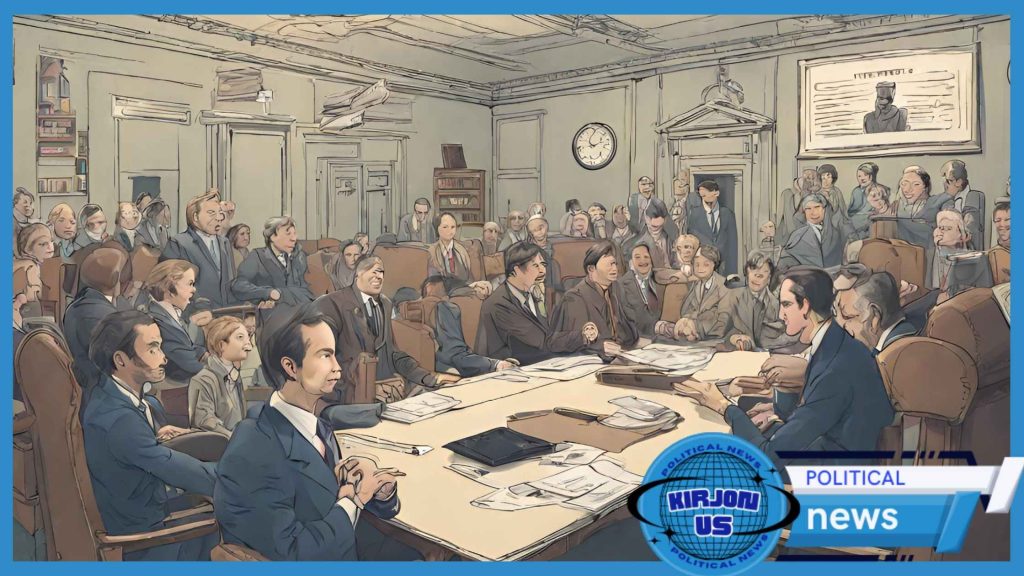
Fundamental Differences
Liberalism: Liberal ideology prioritizes individual rights, social justice, and government intervention to address societal issues. Liberals advocate for progressive policies aimed at promoting equality, protecting the environment, and expanding access to healthcare and education. They generally support government regulation of the economy, social welfare programs, and civil liberties.
Conservatism: Conservative ideology, on the other hand, emphasizes limited government, traditional values, and free-market principles. Conservatives advocate for policies that prioritize individual responsibility, fiscal restraint, and the preservation of traditional institutions and cultural norms. They generally oppose government intervention in the economy, favoring lower taxes, deregulation, and a smaller role for the federal government in social welfare programs.
Political Spectrum
Liberalism: Liberals are typically associated with the left end of the political spectrum. They tend to support policies that promote social and economic equality, environmental protection, and individual rights. Liberal politicians are often affiliated with the Democratic Party in the United States, although there is a range of ideological diversity within the party.
Conservatism: Conservatives are typically associated with the right end of the political spectrum. They tend to prioritize principles such as limited government, free enterprise, and traditional values. Conservative politicians are often affiliated with the Republican Party in the United States, although there are also variations in conservative ideology within the party.
Policy Priorities
Liberalism: Liberal policies often focus on addressing social inequalities, expanding access to healthcare and education, and protecting the environment. Liberals tend to support government intervention in the economy to promote social welfare, regulate industries, and address issues such as income inequality and discrimination.
Conservatism: Conservative policies often prioritize fiscal responsibility, economic growth, and national security. Conservatives tend to advocate for lower taxes, reduced government spending, and deregulation of industries. They also emphasize the importance of traditional values, such as family, faith, and personal responsibility.
While liberalism and conservatism represent distinct political ideologies with differing priorities and policy preferences, American politics is characterized by a dynamic interplay between these competing perspectives. In the next section, we’ll explore the role of liberalism in contemporary American politics, examining its influence on political parties, leaders, and policy debates.
Liberalism in Contemporary Politics
Democratic Party
Dominant Ideology: Liberalism has a significant presence within the Democratic Party, one of the two major political parties in the United States. The party’s platform reflects many liberal principles, including support for social welfare programs, environmental protection, healthcare reform, and civil rights. Democratic politicians often advocate for progressive policies aimed at addressing income inequality, expanding access to healthcare and education, and promoting diversity and inclusion.
Key Figures: Liberal leaders within the Democratic Party include figures such as Barack Obama, Hillary Clinton, Elizabeth Warren, and Bernie Sanders. These leaders have championed progressive causes such as healthcare reform, environmental protection, and economic justice. While there is ideological diversity within the party, liberalism remains a dominant force in shaping Democratic policies and priorities.
Liberal Politicians and Leaders
Influence: Liberal politicians and leaders play a crucial role in shaping the direction of American politics and policy debates. They advocate for progressive solutions to pressing societal issues and push for reforms aimed at advancing equality, justice, and opportunity for all Americans. Liberal leaders often mobilize grassroots movements, engage in coalition-building, and work to enact legislation that reflects liberal values and priorities.
Activism: Beyond electoral politics, liberal activists and organizers play a vital role in driving social change and shaping public opinion. Movements such as Black Lives Matter, the Women’s March, and the environmental justice movement have been instrumental in raising awareness of issues such as racial injustice, gender equality, and environmental degradation. Liberal activists work to hold elected officials accountable, mobilize communities, and advocate for policies that align with progressive values.
In contemporary American politics, liberalism continues to be a potent force for change and progress, driving debates on issues ranging from healthcare and education to climate change and social justice. While liberalism faces challenges and opposition from conservative forces, its influence remains pervasive in shaping the direction of the country. In the following section, we’ll examine global perspectives on liberalism, exploring its spread, challenges, and adaptations in different parts of the world.
Global Perspectives on Liberalism
Spread of Liberal Values
Globalization: Liberal values and principles have spread worldwide, fueled by globalization, technological advancements, and the expansion of democratic governance. The promotion of individual rights, freedoms, and democratic ideals has been championed by international organizations, such as the United Nations and the European Union, as well as by non-governmental organizations and civil society groups.
Impact: The spread of liberal values has led to significant advances in human rights, democracy, and governance in many parts of the world. Liberalism has influenced the development of legal frameworks, institutions, and norms that protect individual liberties, promote equality, and foster social progress. Countries that embrace liberal principles often experience greater political stability, economic prosperity, and social cohesion.
Challenges and Adaptations
Backlash: Despite its global spread, liberalism has faced backlash and resistance in various regions, particularly in authoritarian regimes and illiberal democracies. Authoritarian leaders and populist movements often exploit nationalist sentiments, cultural grievances, and economic anxieties to undermine liberal values and institutions. They use tactics such as censorship, repression, and propaganda to suppress dissent and consolidate power.
Adaptations: In response to these challenges, liberalism has adapted and evolved, taking on different forms and strategies to promote its values and defend against threats. Liberal movements and activists have embraced digital technologies and social media platforms to mobilize support, raise awareness, and hold governments accountable for human rights abuses and democratic backsliding. They also work to build coalitions and alliances with like-minded actors at the national, regional, and international levels.
Future Outlook
Uncertainty: The future of liberalism remains uncertain, as it grapples with internal divisions, external pressures, and shifting global dynamics. The rise of authoritarianism, nationalism, and populism poses significant challenges to liberal values and institutions, threatening the progress made in advancing human rights, democracy, and governance.
Resilience: Despite these challenges, liberalism continues to demonstrate resilience and adaptability, as evidenced by ongoing efforts to defend democratic norms, protect individual liberties, and promote social justice. Liberalism remains a potent force for change and progress, with the potential to shape the trajectory of global politics and society in the years to come.
In the final section, we’ll explore the future outlook for liberalism, examining the implications of changing demographics, shifting political landscapes, and emerging global trends.
Future Outlook for Liberalism
Changing Demographics
Diversity: One of the key factors shaping the future of liberalism is the changing demographics of societies around the world. As populations become more diverse, with increasing ethnic, cultural, and religious heterogeneity, there is a growing demand for policies and institutions that reflect the needs and interests of diverse communities. Liberalism’s emphasis on equality, inclusion, and multiculturalism positions it well to address the challenges and opportunities presented by demographic shifts.
Challenges: However, changing demographics also present challenges for liberalism, particularly in societies where ethnic and cultural tensions are on the rise. Navigating issues of identity, belonging, and integration will require nuanced approaches that balance the principles of individual rights and social cohesion.
Shifting Political Landscapes
Rise of Populism: The rise of populist movements and authoritarian leaders poses a significant challenge to liberalism’s future prospects. Populist leaders often exploit economic grievances, cultural anxieties, and nationalist sentiments to undermine liberal values and institutions. They advocate for policies that prioritize national sovereignty, security, and traditional values, often at the expense of individual rights, democratic norms, and international cooperation.
Resistance: Despite the rise of populism, there is also resistance and pushback against illiberal tendencies. Liberal movements, civil society organizations, and grassroots activists continue to mobilize support, raise awareness, and advocate for progressive reforms. The resilience of liberal values and institutions will depend on the ability of these actors to build coalitions, engage with diverse constituencies, and offer compelling alternatives to populist narratives.
Emerging Global Trends
Technology: The rapid pace of technological advancement presents both opportunities and challenges for liberalism. Digital technologies have democratized access to information, empowered marginalized voices, and facilitated political mobilization and activism. However, they have also enabled surveillance, disinformation, and manipulation by authoritarian regimes and malign actors. Ensuring that technology serves the interests of democracy, human rights, and social justice will require robust regulatory frameworks, ethical standards, and international cooperation.
Globalization: Globalization continues to shape the future of liberalism, as interconnectedness and interdependence blur national boundaries and reshape power dynamics. Liberalism’s commitment to international cooperation, multilateralism, and global governance positions it as a relevant and necessary force in addressing transnational challenges such as climate change, pandemics, and economic inequality. However, globalization also breeds resentment and backlash against perceived threats to national sovereignty, identity, and economic security, posing challenges to liberal values and institutions.
In conclusion, the future outlook for liberalism is characterized by both opportunities and challenges. Demographic changes, shifting political landscapes, and emerging global trends will shape the trajectory of liberalism in the coming years. Despite the obstacles it faces, liberalism remains a resilient and adaptable ideology, with the potential to address the complex and interconnected challenges of the 21st century.
Future Outlook for Liberalism
Changing Demographics
Diversity: One of the key factors shaping the future of liberalism is the changing demographics of societies around the world. As populations become more diverse, with increasing ethnic, cultural, and religious heterogeneity, there is a growing demand for policies and institutions that reflect the needs and interests of diverse communities. Liberalism’s emphasis on equality, inclusion, and multiculturalism positions it well to address the challenges and opportunities presented by demographic shifts.
Challenges: However, changing demographics also present challenges for liberalism, particularly in societies where ethnic and cultural tensions are on the rise. Navigating issues of identity, belonging, and integration will require nuanced approaches that balance the principles of individual rights and social cohesion.
Shifting Political Landscapes
Rise of Populism: The rise of populist movements and authoritarian leaders poses a significant challenge to liberalism’s future prospects. Populist leaders often exploit economic grievances, cultural anxieties, and nationalist sentiments to undermine liberal values and institutions. They advocate for policies that prioritize national sovereignty, security, and traditional values, often at the expense of individual rights, democratic norms, and international cooperation.
Resistance: Despite the rise of populism, there is also resistance and pushback against illiberal tendencies. Liberal movements, civil society organizations, and grassroots activists continue to mobilize support, raise awareness, and advocate for progressive reforms. The resilience of liberal values and institutions will depend on the ability of these actors to build coalitions, engage with diverse constituencies, and offer compelling alternatives to populist narratives.
Emerging Global Trends
Technology: The rapid pace of technological advancement presents both opportunities and challenges for liberalism. Digital technologies have democratized access to information, empowered marginalized voices, and facilitated political mobilization and activism. However, they have also enabled surveillance, disinformation, and manipulation by authoritarian regimes and malign actors. Ensuring that technology serves the interests of democracy, human rights, and social justice will require robust regulatory frameworks, ethical standards, and international cooperation.
Globalization: Globalization continues to shape the future of liberalism, as interconnectedness and interdependence blur national boundaries and reshape power dynamics. Liberalism’s commitment to international cooperation, multilateralism, and global governance positions it as a relevant and necessary force in addressing transnational challenges such as climate change, pandemics, and economic inequality. However, globalization also breeds resentment and backlash against perceived threats to national sovereignty, identity, and economic security, posing challenges to liberal values and institutions.
In conclusion, the future outlook for liberalism is characterized by both opportunities and challenges. Demographic changes, shifting political landscapes, and emerging global trends will shape the trajectory of liberalism in the coming years. Despite the obstacles it faces, liberalism remains a resilient and adaptable ideology, with the potential to address the complex and interconnected challenges of the 21st century.
Conclusion
Liberalism, with its emphasis on individual rights, social justice, and government intervention, has played a profound role in shaping the United States and the world. From its roots in the Enlightenment era to its evolution in contemporary politics, liberalism has championed progressive ideals and policies aimed at promoting equality, protecting the environment, and expanding access to healthcare and education.
Despite facing criticism and challenges, liberalism remains a potent force for change and progress. Its commitment to democracy, human rights, and social welfare has led to significant advances in civil rights, environmental protection, and global cooperation. As the world grapples with complex challenges such as climate change, economic inequality, and technological disruption, liberalism offers a framework for addressing these issues and building a more just and sustainable future.
In the face of rising populism, nationalism, and authoritarianism, the resilience of liberalism will depend on the ability of its proponents to mobilize support, engage with diverse constituencies, and offer compelling alternatives to illiberal ideologies. By embracing inclusivity, innovation, and cooperation, liberalism can continue to shape the trajectory of global politics and society in the years to come.
FAQs
1. Is liberalism the same as socialism?
No, liberalism and socialism are distinct political ideologies with different principles and policy preferences. While both advocate for social justice and equality, liberalism tends to prioritize individual rights, free markets, and limited government intervention, whereas socialism advocates for collective ownership of the means of production and a more extensive role for the state in redistributing wealth and resources.
2. What are some examples of liberal policies in the United States?
Examples of liberal policies in the United States include the Affordable Care Act (ACA), which expanded access to healthcare through measures such as Medicaid expansion and insurance market reforms. Other examples include environmental regulations aimed at protecting air and water quality, as well as social welfare programs such as Social Security and Medicare.
3. How does liberalism differ from conservatism?
Liberalism and conservatism are two major political ideologies with contrasting principles and policy priorities. Liberalism tends to prioritize individual rights, social justice, and government intervention to address societal issues, while conservatism emphasizes limited government, traditional values, and free-market principles. The two ideologies often clash on issues such as healthcare, taxation, and environmental regulation.
4. What role does liberalism play in global politics?
Liberalism plays a significant role in global politics, advocating for principles such as democracy, human rights, and international cooperation. Liberal institutions and norms, such as the United Nations and the Universal Declaration of Human Rights, shape the conduct of states and influence global governance. However, liberalism also faces challenges from authoritarianism, nationalism, and geopolitical rivalries.
5. How can individuals support liberal causes and values?
Individuals can support liberal causes and values by participating in political activism, advocating for progressive policies, and supporting organizations that promote social justice, environmental protection, and human rights. Voting in elections, engaging with elected officials, and raising awareness about important issues are all ways to contribute to the advancement of liberal ideals.

